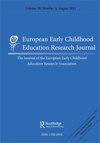ChatGPT、护理和早期与教学和研究纠缠的道德困境
IF 1.8
4区 教育学
Q2 EDUCATION & EDUCATIONAL RESEARCH
European Early Childhood Education Research Journal
Pub Date : 2023-08-23
DOI:10.1080/1350293X.2023.2250218
引用次数: 0
摘要
护理作为一个概念与我们在幼儿教育和护理(ECEC)中的理论和实践错综复杂。本期的十一篇文章展示了关爱的惊人而有趣的表现方式。我的好奇心被激发了,我转向人工智能(AI)应用程序ChatGPT,输入各种关于护理的提示。这个最近发布的应用程序以对话模式生成类似人类的文本。这对人类和机器之间的关系提出了根本性的问题,从知识产权、作者和思想所有权的问题(Peters等人,2023),到对全球南方工人的政治关注,这些工人获得了微薄的报酬来“清理”(暗网)上流传的暴力、种族主义、恐同和性内容。这对那些为谷歌和微软等价值数十亿美元的硅谷产业做出贡献的边缘工人来说是一种创伤(Perrigo 2023)。我已经陷入了这种复杂的认识论、伦理和本体论的人机劳动关系中(Barad 2007),我继续寻找。正如后人类主义者所承认的那样,人类和人类(动物、机器、课程指南、微生物等)在本体论上是相互依存的,是同一世界的一部分。当我将提示缩小到“护理”一词的哲学用法时,一系列原则浮出水面。我感谢这台机器。经过轻微编辑,ChatGPT给出了以下摘要。该应用程序是描述性的,并借鉴了“周围的东西”(经过广泛筛选)。这些甄选过程既不透明,也不值得质疑。证明、核实、准确性或真实性是一项“事后活动”。像鹦鹉一样,ChatGPT缺乏批判性思维和评估来源可信度或其规范性的能力(Peters等人,2023,6,15-17)。本文章由计算机程序翻译,如有差异,请以英文原文为准。
ChatGPT, care and the ethical dilemmas entangled with teaching and research in the early years
Care as a concept is intricately entangled with our theories and practices in Early Childhood Education and Care (ECEC). The eleven articles in this issue show the striking and intriguing ways in which care manifests itself. My curiosity piqued, I turn to the Artificial Intelligence (AI) application ChatGPT and input various prompts about care. This recently released app produces human-like text in conversational mode. This poses fundamental questions about the relationship between humans and machines, ranging from issues about intellectual property, authorship and ownership of ideas (Peters et al. 2023), to political concern for workers in the Global South who are paid a pittance to ‘clean up’ the violent, racist, homophobic and sexual content that circulates on the (dark) web. This is traumatic for the workers involved who, on the margins, contribute to the billion-dollar Silicon Valley industries such as Google and Microsoft (Perrigo 2023). Already entangled in this complex epistemological, ethical and ontological human-machine labour relationship (Barad 2007), I continue my search. As posthumanists acknowledge, humans and more-than-humans (animals, machines, curriculum guidance, microbes, etc) are ontologically interdependent – part of the same world. As I narrow down my prompts to the philosophical use of the term ‘care’ a list of principles emerges. I thank the machine. Lightly edited, ChatGPT gives the summary below. The app is descriptive and draws from ‘what is around’ (after extensive filtering). These selection processes are neither transparent nor open to question. Justification, verification, accuracy or truth are a ‘post-hoc activity’. Like a parrot, ChatGPT lacks critical thinking and the ability to evaluate the credibility of sources or their normativity (Peters et al. 2023, 6, 15–17).
求助全文
通过发布文献求助,成功后即可免费获取论文全文。
去求助
来源期刊

European Early Childhood Education Research Journal
EDUCATION & EDUCATIONAL RESEARCH-
CiteScore
4.20
自引率
8.70%
发文量
70
期刊介绍:
The European Early Childhood Education Research Journal (EECERJ) is the publication of the European Early Childhood Education Research Association (EECERA), an international organisation dedicated to the promotion and dissemination of research in Early Childhood Education throughout Europe and beyond. CREC is the UK base for the European Early Childhood Research Association. EECERA welcomes and encourages membership and contributions from across the world to share and participate in its European perspective. EECERJ aims to provide a forum for the publication of original research in early childhood education in Europe.
 求助内容:
求助内容: 应助结果提醒方式:
应助结果提醒方式:


